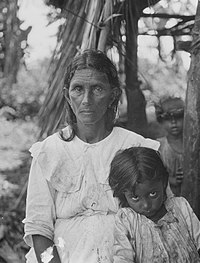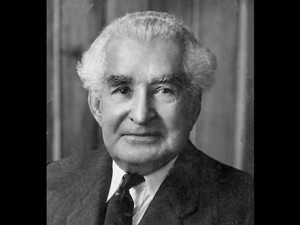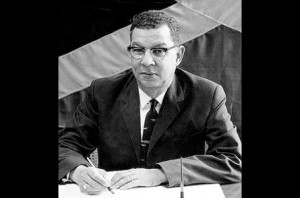Jamaica is an island country situated in the Caribbean Sea, comprising the third-largest island of the Greater Antilles. The island, 10,990 square kilometres (4,240 sq mi) in area, lies about 145 kilometres (90 mi) south of Cuba, and 191 kilometres (119 mi) west of Hispaniola, the island containing the nation-states of Haiti and the Dominican Republic. Jamaica is the fifth-largest island country in the Caribbean.
Previously inhabited by the indigenous Arawak and Taíno peoples,
 the island came under Spanish rule following the arrival of Christopher Columbus in 1494. Named Santiago, it remained a possession of Spain until 1655, when England (later Great Britain) conquered the island and renamed it Jamaica. Under British rule, Jamaica became a leading sugar exporter, with its plantation economy highly dependent on slaves imported from Africa, followed later by Chinese and Indian indentured labor. All slaves were fully emancipated in 1838, with independence from the United Kingdom achieved on 6 August 1962.
the island came under Spanish rule following the arrival of Christopher Columbus in 1494. Named Santiago, it remained a possession of Spain until 1655, when England (later Great Britain) conquered the island and renamed it Jamaica. Under British rule, Jamaica became a leading sugar exporter, with its plantation economy highly dependent on slaves imported from Africa, followed later by Chinese and Indian indentured labor. All slaves were fully emancipated in 1838, with independence from the United Kingdom achieved on 6 August 1962.
With 2.8 million people, Jamaica is the third most populous Anglophone country in the Americas (after the United States and Canada), and the fourth most populous country in the Caribbean. Kingston is the country's capital and largest city, with a population of 937,700. Jamaicans are of predominately African descent, with significant European, Chinese, Indian, and mixed-race minorities. Due to a high rate of emigration since the 1960s, Jamaica has a large diaspora around the world, particularly in Canada, the United Kingdom, and the United States.
Jamaica is a Commonwealth realm, with Queen Elizabeth II as its monarch and head of state. Her appointed representative in the country is the Governor-General of Jamaica, currently Sir Patrick Allen. The head of government and Prime Minister of Jamaica is Portia Simpson-Miller. Jamaica is a parliamentary constitutional monarchy with legislative power vested in the bicameral Parliament of Jamaica, consisting of an appointed Senate and a directly elected House of Representatives.

Previously inhabited by the indigenous Arawak and Taíno peoples, the island came under Spanish rule following the arrival of Christopher Columbus in 1494. Named Santiago, it remained a possession of Spain until 1655, when England (later Great Britain) conquered the island and renamed it Jamaica. Under British rule, Jamaica became a leading sugar exporter, with its plantation economy highly dependent on slaves imported from Africa, followed later by Chinese and Indian indentured labor. All slaves were fully emancipated in 1838, with independence from the United Kingdom achieved on 6 August 1962.
With 2.8 million people, Jamaica is the third most populous Anglophone country in the Americas (after the United States and Canada), and the fourth most populous country in the Caribbean. Kingston is the country's capital and largest city, with a population of 937,700. Jamaicans are of predominately African descent, with significant European, Chinese, Indian, and mixed-race minorities. Due to a high rate of emigration since the 1960s, Jamaica has a large diaspora around the world, particularly in Canada, the United Kingdom, and the United States.
Jamaica is a Commonwealth realm, with Queen Elizabeth II as its monarch and head of state. Her appointed representative in the country is the Governor-General of Jamaica, currently Sir Patrick Allen. The head of government and Prime Minister of Jamaica is Portia Simpson-Miller. Jamaica is a parliamentary constitutional monarchy with legislative power vested in the bicameral Parliament of Jamaica, consisting of an appointed Senate and a directly elected House of Representatives.
Jamaica slowly gained increasing independence from the United Kingdom. In 1958, it became a province in the Federation of the West Indies, a federation among the British West Indies. Jamaica attained full independence by leaving the federation in 1962.
Strong economic growth, averaging approximately 6% per annum, marked the first ten years of independence under conservative governments; they were led successively by Prime Ministers Alexander Bustamante, Donald Sangster and Hugh Shearer. The growth was fuelled by strong private investments in bauxite/alumina, tourism, manufacturing industry and, to a lesser extent, the agricultural sector.
The optimism of the first decade was accompanied by a growing sense of inequality, and concern that the benefits of growth were not being shared by the urban poor. Combined with the effects of a slowdown in the global economy in 1970, the electorate was moved to change government, electing the PNP (People's National Party) in 1972. Despite efforts to create more socially equitable policies in education and health, Jamaica continued to lag economically. By 1980, its gross national product had declined to some 25% below the 1972 level. Due to rising foreign and local debt, accompanied by large fiscal deficits, the government sought International Monetary Fund (IMF) financing from the United States and others. The international bankers imposed IMF austerity measures (with a greater than 25% interest rate per year).
Economic deterioration continued into the mid-1980s, exacerbated by a number of factors; the first and third largest alumina producers, Alpart and Alcoa, closed, and there was a significant reduction in production by the second largest producer, Alcan. In addition, tourism decreased and Reynolds Jamaica Mines, Ltd. left the Jamaican industry.
Independence, however widely celebrated in Jamaica, has in more recent years been a topic for discussion. In 2011, a survey done showed that approximately 60%f Jamaicans would push to once again become a British territory; citing years of social and fiscal mismanagement in the country.

Sir William Alexander Clarke Bustamante, GBE was a Jamaican politician and labour leader who became the first prime minister of Jamaica. Bustamante is honoured in Jamaica with the title National Hero of Jamaica in recognition of his achievements.

Sir Donald Burns Sangster was a Jamaican solicitor and an old boy of the prestigious Munro College in St. Elizabeth, Jamaica., politician and the second Prime Minister of Jamaica.

Hugh Lawson Shearer ON OJ PC was a Jamaican politician and trade unionist, who served as the third Prime Minister of Jamaica, from 1967 to 1972.












